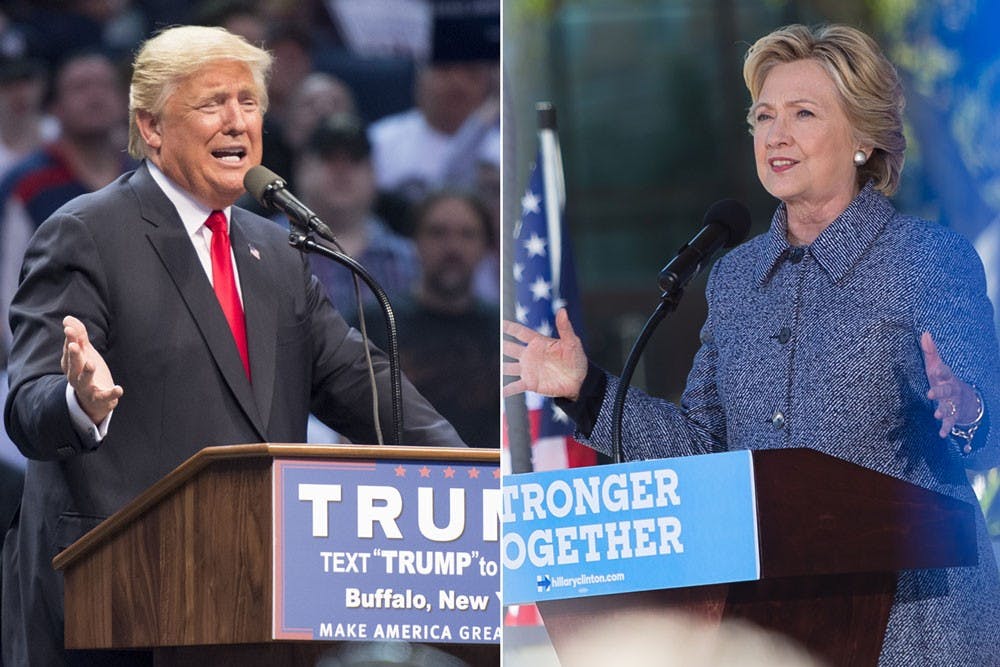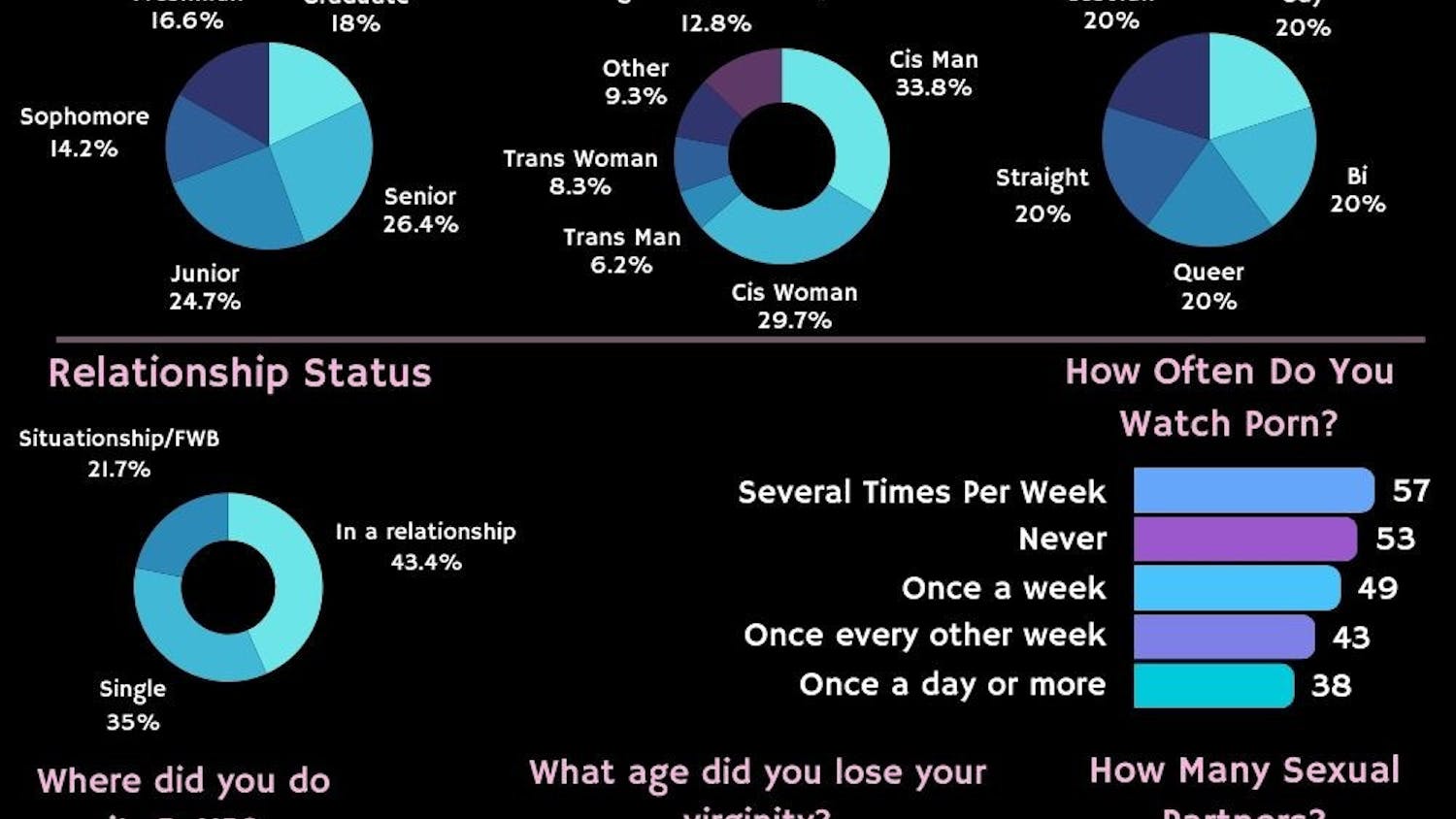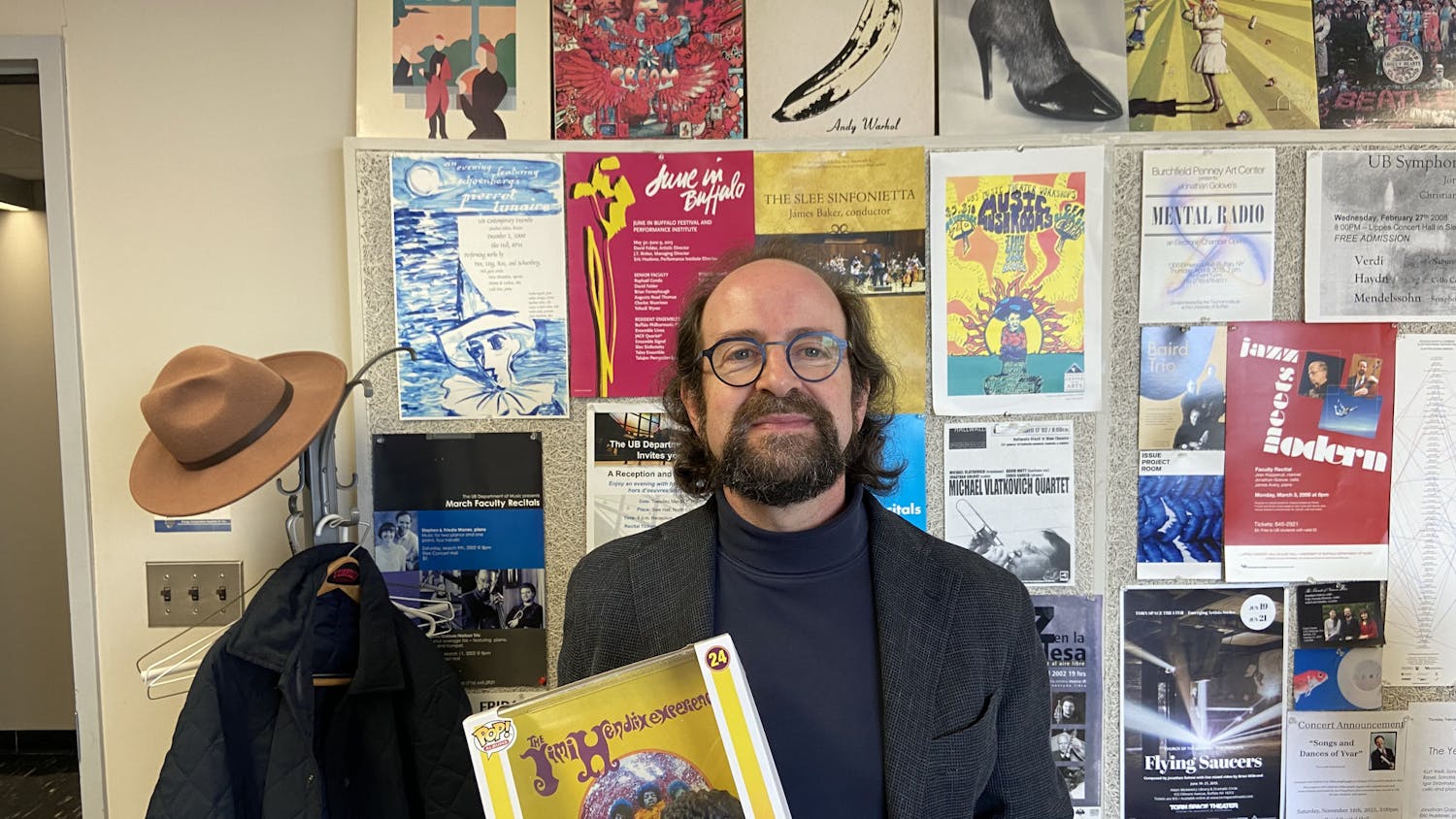More than 60 million people tuned into the first two presidential debates so far and some may be asking themselves, “What should I be paying attention to?”
News stations advertise the recent debates like primetime fights and the word “scandal” follows each candidate like a storm cloud.
The latest video of Republican presidential candidate Donald Trump’s “locker room talk” comment has been on headlines everywhere. But even after the video surfaced, Trump faired better after the second debate compared to the first, according to CNBC.
Jacob Neiheisel, a political science professor, said Trump did not take a larger hit after the audiotapes were released because of “motivated reasoning.”
“We have remarkable ability to turn information on in our head or ignore information to be favorable,” Neiheisel said. “Before last week and the leak of what Trump is calling his locker room talk, I would have said he is Teflon Don in the sense that these things come out and his supporters continue to rally to him.”
Twitter and Facebook allow immediate access to news but sources can vary heavily. It becomes difficult to gather information through the popular headlines and determine what’s fact and what’s opinion.
The practice of fact checking has become more popular because media is so accessible.
PolitiFact, NPR and many other sources fact check the debate in real time, allowing people to follow the debate more accurately.
Neiheisel wants voters to make sure they understand the information and can look through the media bias.
“You have to put facts into context,” Neiheisel said. “It’s a great service they provide, but I would encourage folks to read more than just the meter and quick summary. I would be shocked to see the Fox News conclusions be the same as the MSNBC conclusions. This is just a byproduct of this really fractured media environment we live in.”
Dr. Jacob Kathman, another political science professor, said policy is not enough of a talking point in the media.
“Both candidates have created headlines with their past behavior. This is deserving of attention,” Kathman said. “However, this attention has had the effect of crowding out discussion of their policies and vision for the country.”
Dr. James Campbell, a political science professor, thinks certain scandals should have a larger effect on the voters than others.
“Some scandals more than others are relevant to the election of a president,” Campbell said. “Scandals involving matters that affect public policy should receive more attention than those that are more personal in nature. As reprehensible as the Trump ‘Access Hollywood’ audio is, it would seem to be more about Trump as a person, than as a leader.”
It’s become necessary for voters to sift through the “personal” scandals, especially for those who are undecided.
Campbell thinks voters should keep one thing in mind when making a decision – the big picture.
“Students, like all Americans, should keep the big picture in mind when they vote. What is best for the country generally? Which candidate is most likely to pave the way for peace and prosperity, for security and growth?” Campbell said. “Candidates can promise you the moon, but what matters is what they can actually deliver. Beware of pandering politicians and this applies to parties and both ends of the political spectrum.”
Evan Grisley is the features editor and can be reached at evan.grisley@ubspectrum.com





